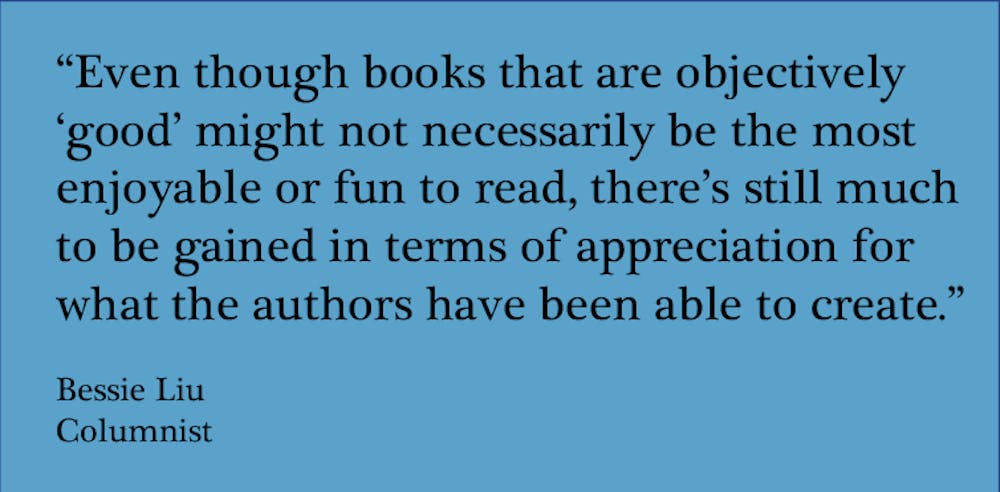
My feelings toward classic works of literature, or more specifically, toward British literature, have never been outstandingly positive.
I never really enjoyed reading Pride and Prejudice or Wuthering Heights in high school, which wasn’t great because we had at least an entire year’s worth of English dedicated to British literature.
I found it difficult to be engaged in the writing itself, let alone to feel sympathy for the sheer number of characters in each novel, each with their own significant challenges to keep track of.
What makes a piece of literature “good”? This is a question that I’ve often wondered about. While people have different answers and preferences for good literature, I think I can narrow my answer down to several general elements: well-written characters, interesting storylines and style of writing, in order of importance to me.
But what makes a good piece of literature a “classic”?
Shakespeare is a staple of many high school English literature curricula (for AP Literature, I think we ended up reading around five of his plays), and it’s not that difficult to see why. I’ve always found the characters to be the best part of stories, and his characters’ motivations and frustrations are well thought out and well reasoned.
Moreover, his style of writing is grand and gracefully poetic. He has the ability to convey certain truths about the human experience through his writing, and Macbeth’s famous proclamation that life is “a tale told by an idiot, full of sound and fury, signifying nothing” is one of my favorite soliloquies.
Shakespeare is often referenced in other works of literature, but his literary influence extends beyond English and into popular culture — including the selling of Shakespearean insult-themed mugs and calendars. There’s no reason why I shouldn’t like reading Shakespeare.
Perhaps a part of my discomfort with British literature can be traced back to my high school classes. We focused a lot on the structure and mechanics of writing an essay but not so much on how to analyze the literature itself and how to come up with fresh ideas on centuries-old texts.
I remember that one of my teachers was often the one to make the connections for us. Granted, there isn’t really a set way to teach students how to analyze a piece of literature besides perhaps allowing students to explore the literature through discussion-based class sessions.
But discussions hinge on the participation of your peers. For students who didn’t like English, didn’t read the assigned text or were not inclined to speak in class, that poses a problem.
Personally, whenever we would have in-class discussions, I would sometimes be afraid of sharing my thoughts on the text out loud, fearing that I would say something wrong.
I just wonder sometimes: If I had read more classic novels outside of class, on my own, without being confined by a curriculum disproportionately favoring British classics, without the threat of an AP test or an in-class essay looming overhead, would I then have found more joy in the process, even though I would risk missing out on the insights into the literature that my teachers could offer?
I don’t mean for this article to be some sort of exposé on the quality of high school English teaching. But my experiences with reading classic literature have been so intertwined with my experiences in my high school English classes that I don’t know how much of my apprehension toward reading famous classic novels is actually due to the way the novels were taught to us, and how much of it is due to my own discomfort with the properties of the literature itself.
However, this isn’t to say that I don’t like classic literature in general or that I don’t want to read more classic novels — not just works by Shakespeare but also works by other literary legends that were never touched upon in my high school AP English classes. It’s easy to just read books and poems that are in your comfort zone.
And even though books that are objectively “good” might not necessarily be the most enjoyable or fun to read, there’s still much to be gained in terms of appreciation for what the authors have been able to create, which has lasted generations.





